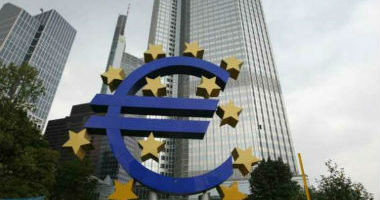 New Year’s holidays have passed, but the hangover for the single European currency could take a long time. This may well be related with the upcoming on January 25 early parliamentary elections in Greece, which according to the polls is likely to win the left Syriza party and its leader Alexis Tsipras.
New Year’s holidays have passed, but the hangover for the single European currency could take a long time. This may well be related with the upcoming on January 25 early parliamentary elections in Greece, which according to the polls is likely to win the left Syriza party and its leader Alexis Tsipras.
This may cause a further depreciation of the euro, as the party Syriza opposes austerity measures imposed mainly by Germany. Also, this election could turn into a referendum on Greece's membership in the European Union.
While all this is likely to cause volatility with state spreads in Greece, it can be assumed that the relationship with other regions of Europe will be limited, not least because that Portugal, Ireland and Spain are slightly strengthened their economic performance in the past year. Of course, the victory of Syriza party could lead to chaos in the peripheral debt markets, so the ratio of market assets on the basis of the euro may be wary at the beginning of the new year.
Another event that is of concern to everyone is what would make the ECB at the January 22 meeting, given that the ECB will no longer hold meetings once a month, and in 2015 they will take place just every six weeks.
Will ECB start a program of quantitative easing (QE) or not may depend on the December index of the Consumer Price Index (CPI), which will be published today. The market now expects that inflation will drop to 0%. However, after a sharp decline in oil prices it is likely that the rate will be much lower, perhaps -0.1% and -0.2%.
A barrier to full-scale QE program in the style of the U.S. Fed is very high, not least because of the political opposition in Berlin, we can assume that the ECB will have to do active measures if the Eurozone will come to an explicit deflation at the end of this year.
So how big can be QE impact on the EUR? Most likely, if the ECB really decides to increase asset purchase program with inclusion the state-owned assets, the program will not be so ambitious to significantly advance the euro down. Plus, the relationship between QE and the behavior of the European currency is interpreted not uniquely.
USD, oddly enough, has grown this year, even despite the fact that Fed's balance sheet continued to grow. The same thing can happen to the euro, because the fact that the EURUSD fell from the month of May by about 13% is in some way shows that the market already has taken into account the prospect of QE, which may have more noticeable impact on the currency.
Although there is great reason to believe that the EURUSD will fall below $ 1.19 in 2015, it is unlikely to occur solely as a result of QE, and the greater impact on the EUR may have concerns about deflation.
Thus, as you can see, there are still plenty of risks for the euro area but Greece and deflation pose a main threat for the EUR in January.







